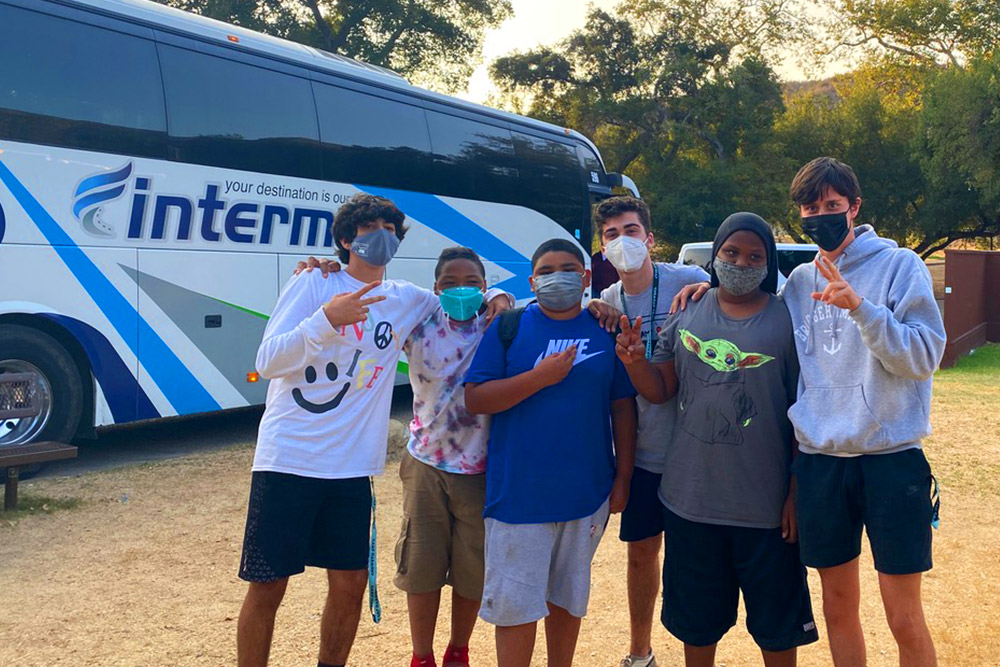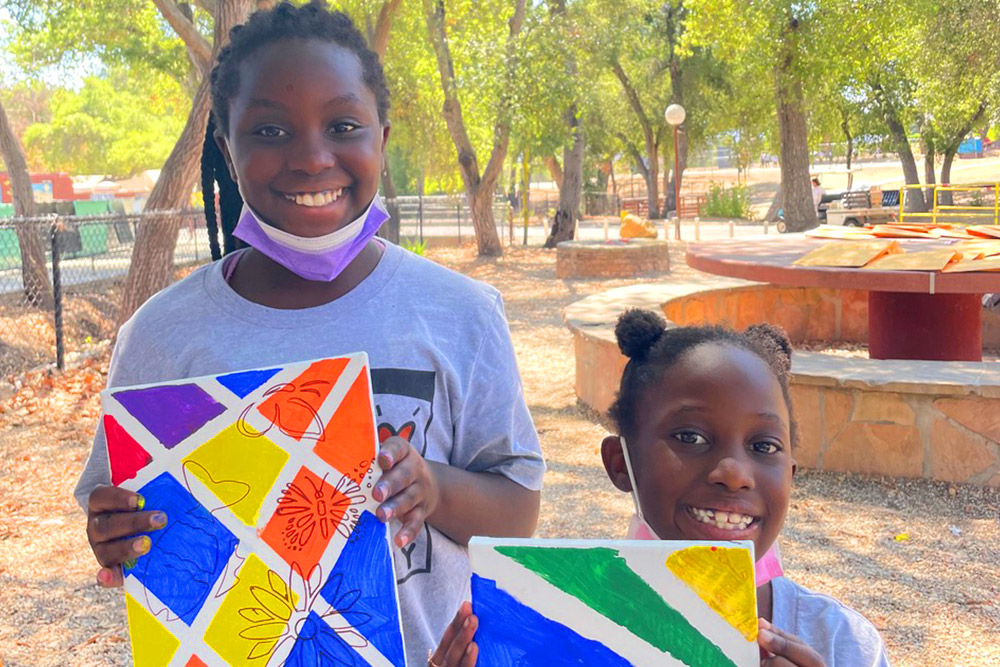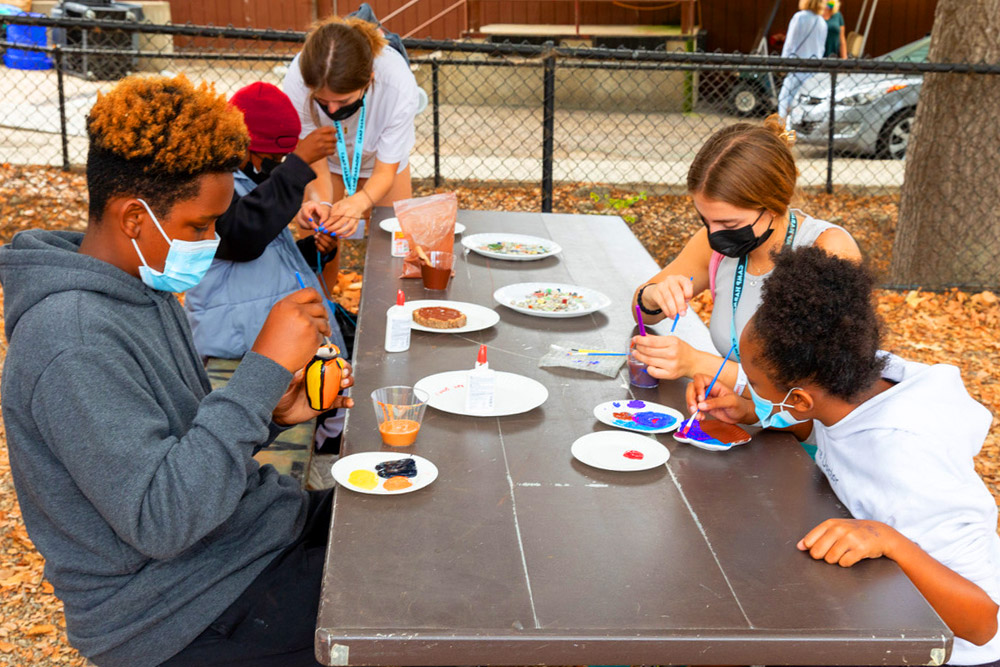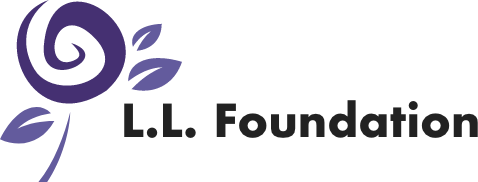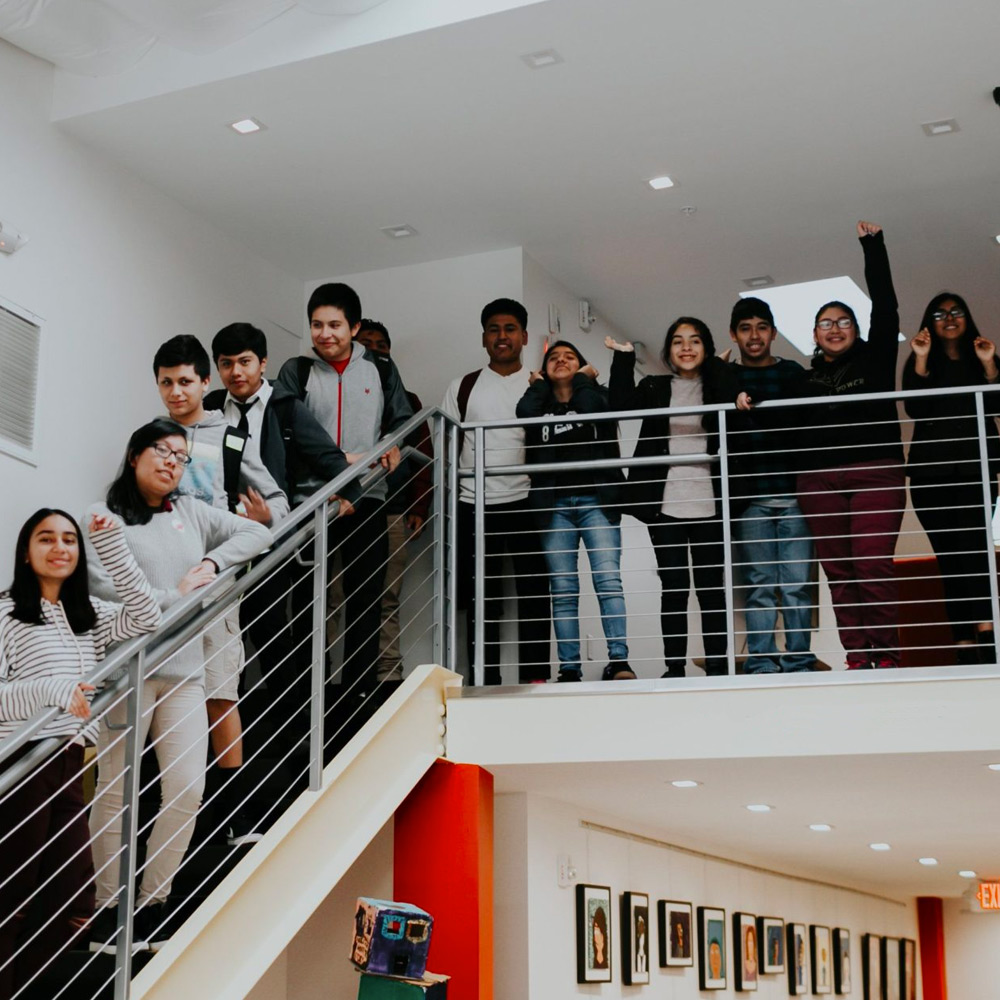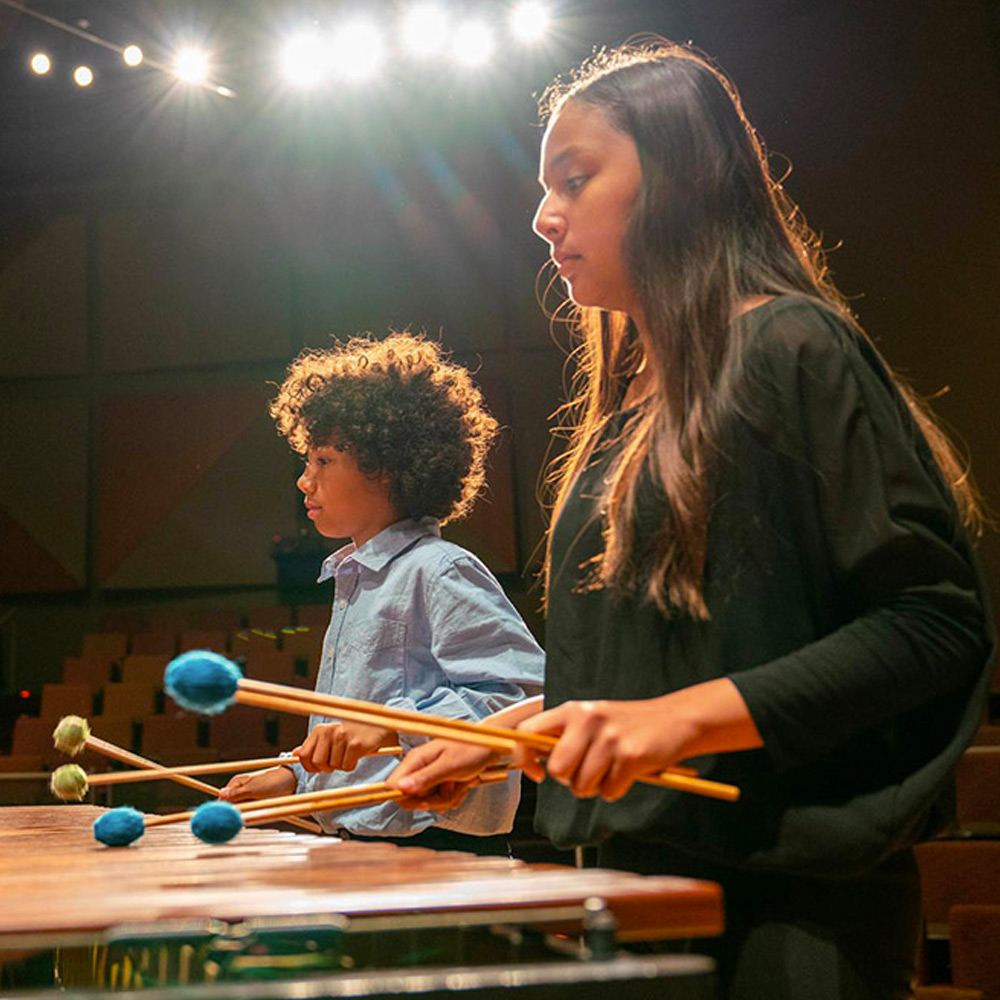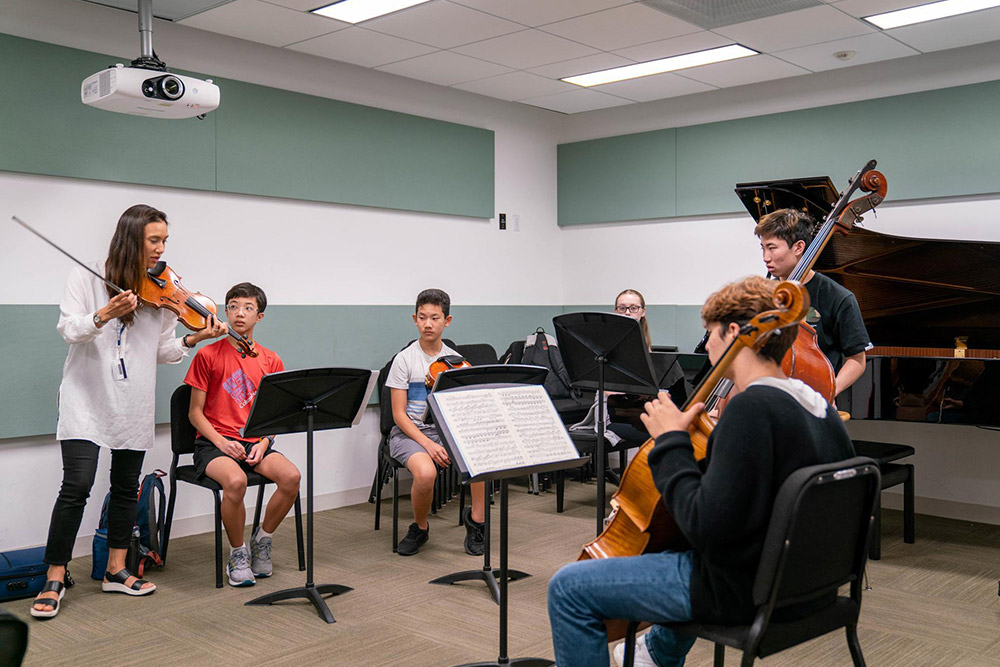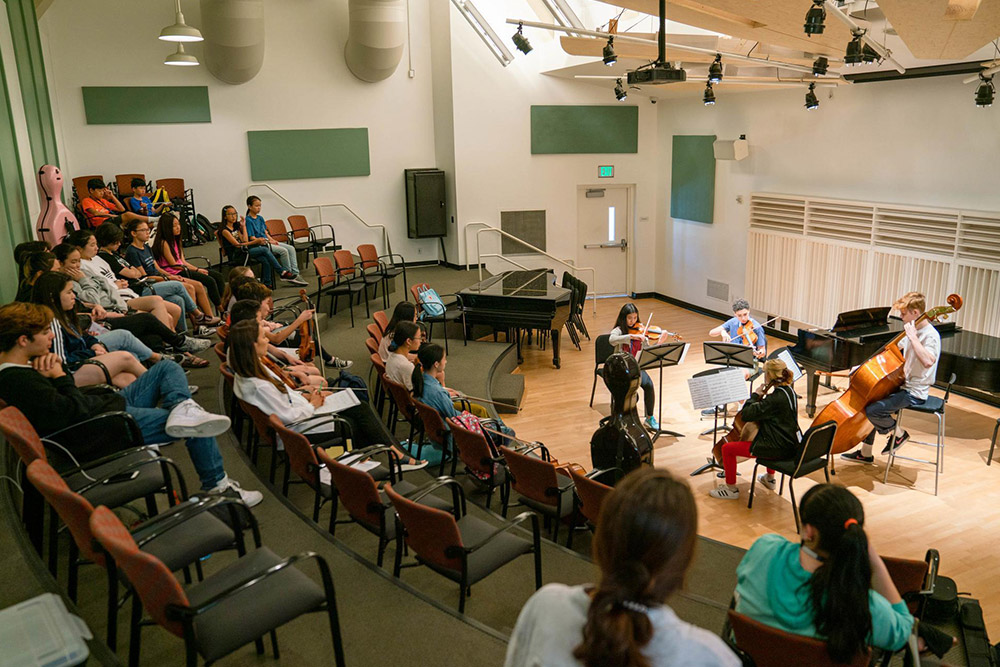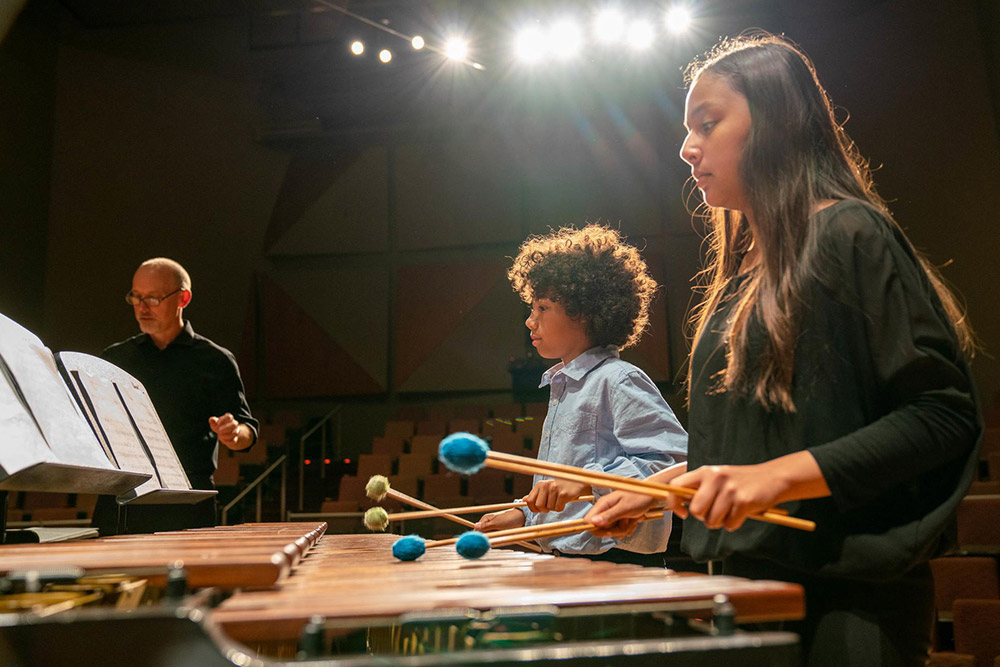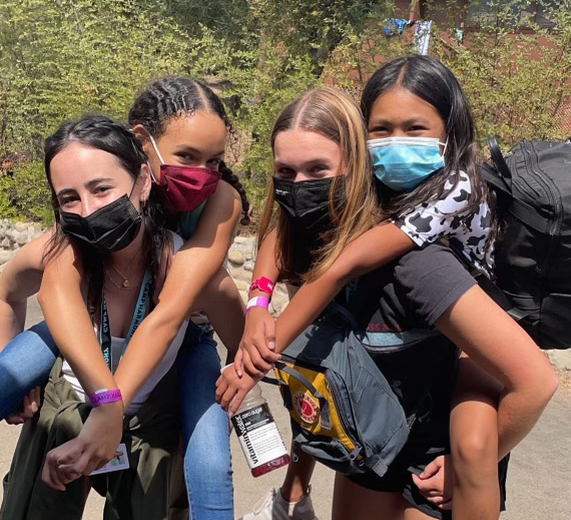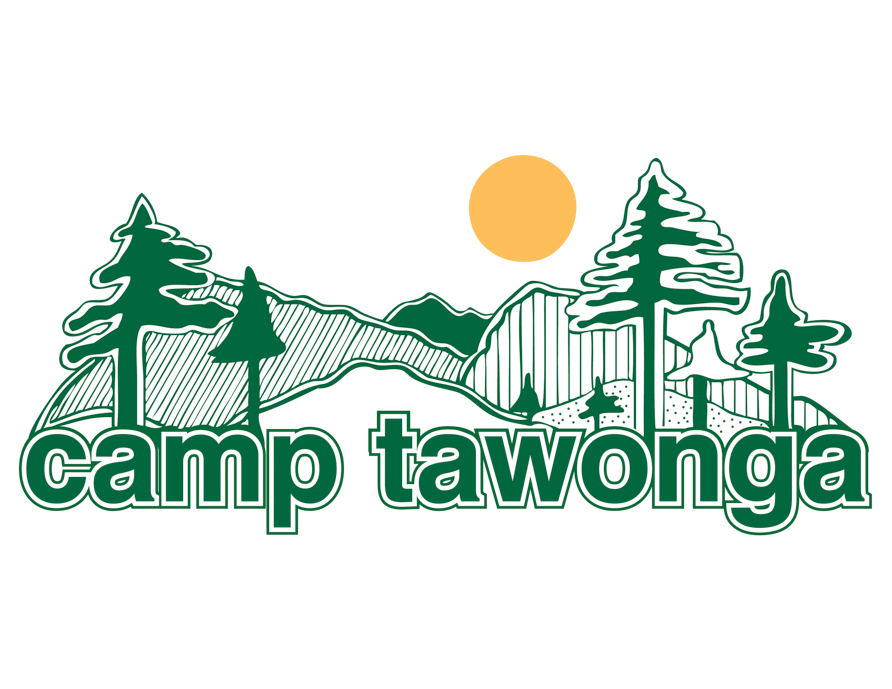“With the funds from L.L. Foundation for Youth, we have funded the Ava Grace Counselor Scholarship Fund, which was created in memory of our past Camp Harmony Counselor who lost her battle with brain cancer. This scholarship fund will be used, solely, to cover the cost of camp for counselors that cannot afford the counselor fees or any costs associated with camp. The vast majority of these counselors that are requesting financial aid are former campers. There is nothing more meaningful to Harmony then watching former campers come back as counselors!”
-Lindsay Schwartz, Executive Director, United in Harmony, Camp Harmony
Since 1989, United in Harmony’s Camp Harmony has brought loving and safe experiences to children experiencing poverty and homelessness in the Greater Los Angeles area. An overnight camp in Malibu, it is designed to give each child hope, opportunities, all the love they can take and all the food they need. By creating a safe space where campers can play freely, Camp Harmony helps campers grow new talents, learn to trust, and develop self-esteem.
COVID-19 proved to be a great challenge to the overnight camp model. “In June [2021] we were very hopeful [we would be able to host Camp Harmony] but [the] Delta [strain of the Coronavirus] happened. We did not want to cancel camp. We believe Camp Harmony is an important experience to serve campers,” explains Executive Director Lindsay Schwartz. Rather than cancel the camp, the program shifted to a day-only model, loading kids into buses at 6:45 am to reach the new location: a park in Ojai. This new model was able to serve over 200 children in a three-day period. According to Schwartz,
“We found a way to still have every one of our programs. It didn’t matter where we were…we were in a brand new park and setting but you could still feel the heart of Camp Harmony. You could see the bonds created and counselors giving the attention the kids really need. You could still feel the love and spirit.”
Despite the drastic changes, Camp Harmony found a way to connect with their campers, and was able to deliver such a great experience, in great part due to their internal participant and staffing model, which fits perfectly within the organization’s vision and mission statement, and in turn, creates a very close and supportive community that builds upon itself.
Campers
Camp Harmony is a nexus of cultural and socio-economic communities. Pre-Covid, the operation was large, with over 350 counselors and 200 adult support staff. In the past, constituents from over 12 shelters, agencies and schools sent their children to Camp Harmony, totaling over 600 underserved children each year, with all tuition covered by United in Harmony. Campers enjoy a wide assortment of activities along with three hot meals served each day, and over 300 sleeping bags distributed to campers during the summer overnight sessions. Campers are also offered ample support and supervision, as each cabin hosting three to four counselors for every eight to ten campers. Campers have such an exciting experience that many of them come back to serve as counselors when they have aged out of the camper experience. Marissa Guadarrama, a former camper turned volunteer Camp Harmony counselor, shares:
“When I was very young, I came to this camp as a camper…Ever since [then] I told myself I wanted to be a counselor… I wanted to do the same thing that those counselors a long time ago did for me. They provided me with one of the most fun things I have ever experienced…I want the experience…from a different point of view. The view of a counselor. “
Counselors and Staff
While the campers are all underserved children, counselors are recruited from 35 different local high schools and are expected to pay for their own camp experience (room and board). This becomes tricky when applicants are former campers who cannot afford the fees. Camp Harmony does everything possible to help with these fees, as is evidenced by the Ava Grace Counselor Scholarship Fund, created to cover fees for former campers who wish to return as counselors. The counselor experience turns young high school students into community leaders who serve as role models for the young campers as they closely guide campers’ experiences. Former camper, now counselor, Jasmine Martinez explains:
“I have returned back to the place that taught me that there are people out there in the world rooting for me. This summer Camp Harmony gave me the best gift and allowed met to return back as a counselor to young girls in the same position I once was.”
At the highest level, Camp Harmony staffs its groups with Unit Heads: college students from across the country who volunteer in a more managerial capacity and lead the leaders of the camp.
L.L. Foundation for Youth is proud to support Camp Harmony’s mission to create leadership opportunities to high school aged youth, regardless of socio-economic status, through the funding of Camp Harmony’s Ava Grace Scholarship Fund. This fund will provide scholarships for high school students, such as Marissa Guadarrama, Jasmine Martinez and Keila Merida (below) who would otherwise be unable to pay for their own expenses to volunteer as Camp Harmony counselors.
“I used to be a camper at Camp Harmony… My favorite thing …was meeting new people and having a dance party after dinner…I remember …we used to do [activities] with our counselors like yoga, candle making, and the amazing race. [As a new Camp Harmony counselor] I hope to gain… leadership and better communication skills. Camp Harmony can help me get leadership skills because as a counselor you have to be a role model for campers and other counselors. Not only will I learn to be a role model but I would also learn to team build with other people… I hope to gain better communication skills because it can help me stand up for people and be able to express my opinions in a positive way. I know this is achievable because I looked up to my counselors when they would always be so confident when speaking and they made the other campers and I feel welcomed there. “
-Keila Merida, Former Camp Harmony Camper Turned Volunteer Camp Harmony Counselor
